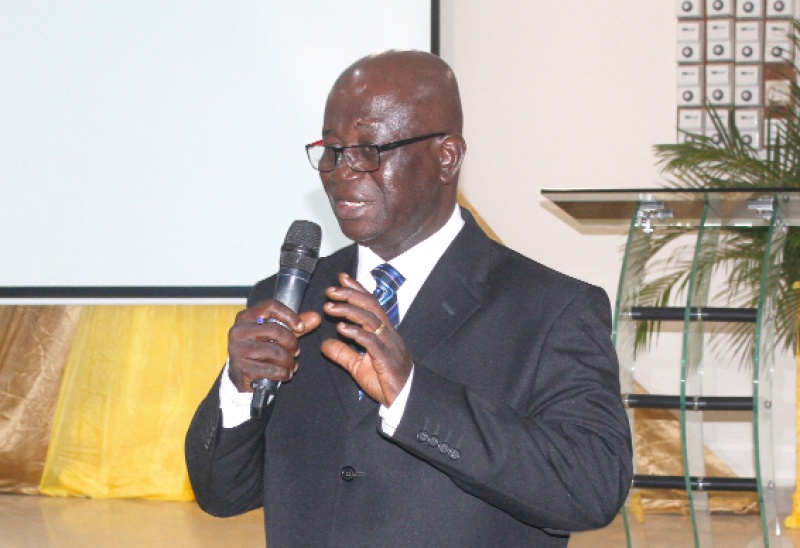
The implementation of the seven per cent withholding Value Added Tax (WVAT) will take effect from October 1, 2018, the Controller and Accountant General, Mr Eugene Asante Ofosuhene, has said.
The Accountant General, who is on a tour to sensitise staff of the department, charged treasury officers of the state to assist in all spheres of their duties to protect the public purse, as well as improve and enhance revenue collection.
Mr Ofosuhene gave the charge in a speech read on his behalf by the acting Deputy Controller, Mr Kwaning Bosompem, at a sensitisation workshop on withholding VAT for heads of accounts at the ministries, departments and agencies in the Central and Western regions in Cape Coast last Wednesday.
He said the nation “stands at the crossroads for the attainment of unprecedented growth and development”, particularly with the government’s flagship policies such as the free senior high school (SHS) and the one district, one-factory (1D1F), if the treasury officers failed to work towards improving shortfalls in revenue collection.
Effective tax mobilisation
He reminded the participants that no country could develop without the effective mobilisation of taxes, adding that that was why many countries across the world had designed various ways of tax collection, including VAT and WVAT.
Mr Ofosuhene reiterated that the WVAT was not a new VAT or new tax regime but had existed under the Value Added Tax Withholding Amendment Act (Act 954) 2017 aimed at reducing the number of ‘nil and non-fliers’ and reducing future uncollected debts by collecting the tax upfront from some of the major consumers.
Advantage
“The other advantages of the Withholding VAT include the increase in voluntary registration, enhancing compliance, promoting fair application of tax laws and improving revenue inflows into government treasury,” he said.
He said it was disheartening that efforts being made by the government to raise revenue for infrastructural development and economic transformation to lift the vast majority of the people out of poverty were thwarted by shortfalls in revenue generation.
Statistics
Mr Ofosuhene indicated that the GRA missed its target of raising GH¢24.5 billion at the end of August this year by GH¢1.8 billion, having mobilised GH¢22.7 billion.
“The Withholding VAT, therefore, becomes handy as one of the measures put in place to help reduce revenue leakages and optimise fund mobilisation,” he said.
Landscape
The acting Assistant Commissioner of the GRA, Mr George Amankwa-Boateng, said the country had been practising the indirect tax system (VAT) for some 20 years now.
Nonetheless, he said, the VAT regime was still plagued with a high incidence of persistent under-declaration by suppliers, large members of unregistered suppliers, particularly from the informal sector, and traders who charged VAT but did not remit same to the GRA.
Source : www.graphic.com.gh

































